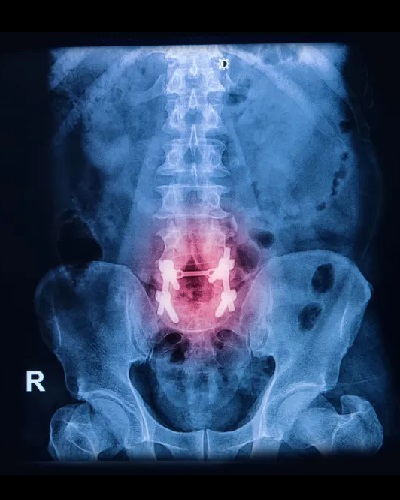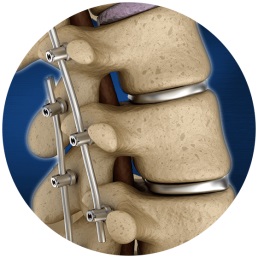Failed Back Syndrome Symptoms & Treatment Options
Although the word syndrome is used, Failed Back Syndrome is more of an outcome rather than an illness. Failed back syndrome is a term that is used to describe anyone who has undergone a back surgery and continues to experience discomfort or worsening pain. Individuals who have undergone back surgery have typically spent years attempting less invasive, more conservative methods to recovery. These routes often include techniques such as pain management, physical therapy, and lifestyle adjustments. When these treatments didn’t work, however, these individuals turned to surgery to relieve their pain.
Spine surgery is a complicated endeavor. It requires an in-depth look at the causes and locations of back pain before the surgery can occur. If something goes wrong with the diagnosis, with the surgery itself, or with the healing process, problems can occur and result in prolonged or sometimes amplified pain.
Symptoms of Failed Back Syndrome
The symptoms of failed back syndrome are similar to those that brought the individual into surgery in the first place. In fact, that is pretty much what the term implies: the continuation or worsening of previous back pain and radicular (neurological) symptoms. If you have recently had surgery on your spine and are experiencing any of the symptoms below, you may be experiencing failed back syndrome.
If you have recently had spine surgery in the hopes of relieving your pain, and instead are experiencing consistent or more intense symptoms, call the today. Our board certified, spine surgeon, Dr. Martin, specializes in treating failed back syndrome. He will work with you one-on-one to assess the effects of your failed surgery, and help you identify a suitable route forward.
Misdiagnosis
There can be multiple reasons for failed back syndrome. However, one of the most common is a misdiagnosis of the original problem. Because so many spinal conditions can present themselves with similar symptoms, there can often be confusion or mistakes in diagnosing the true problem. For example, sciatica, herniated discs, spinal fractures, and spinal stenosis can all cause similar radicular symptoms. Yet, these conditions can also occur in different locations of the spine at the same time. Additionally, imaging of spinal tissues, such as nerves and discs, can be difficult as these techniques do not always pick up these structures. This can also lead to a lack of evidence of the source of pain and eventual misdiagnosis.
Other Common Causes of Failed Surgery Syndrome
Other common causes of failed surgery syndrome include:
Surgeon Failure: Along with misdiagnosis and performing the wrong surgery, there are other possible causes of failed back syndrome. Surgeon failure can be one of these, especially when your physician fails complete the goals of initial surgery or attempts to perform a smaller procedure to avoid prolong recovery and instead of achieving relief, patients might feel worse after initial surgery when surgeon and procedures fall short.
Implant Migration: Implant migration can also occur. This refers to when a spinal disc implant shifts out of its intended location, destabilizing the spine and painfully compressing nerve tissue.
Failed Spinal Fusion: Failed spinal fusions ( know as pseudoarthrosis) can also create complications. When a spinal fusion is performed, the end goal of the procedure is for the implanted materials to eventually fuse with the original bones that require additional support. This fusion should result in a strong, singular structure. If the implanted materials fail to fuse over time or the healing process after surgery is interrupted or inadequate, then the joint can remain unstable and pain can persist or worsen.
Scar Tissue: Scar tissue, although not a common cause of failed back syndrome, can also be the culprit. Scar tissue is a normal part of any surgical healing process; however, it should not be painful. Sometimes scar tissue can form around nerves, causing a binding of the nerve and resulting in agonizing pain.
If You Or Someone You Know Recently Had Spine Surgery, Someone With Failed Back Syndrome May Have The Following Symptoms Emerge:
- Continued or increased pain and discomfort not associated with the healing process
- Continued or increased radicular symptoms, such as shooting pain, numbness or tingling in the limbs that is progressive
- An inability, over time, to experience any level of recuperation from the surgery
- The possibility of increased reliance on pain medication that can turn into addiction
- A feeling of immobility in the affected region and/or the experience of back spasms
- Psychological symptoms such as anxiety, depression, irritability, and insomnia
More about Dr. Matin
Failed Back Syndrome Symptoms & Treatment Options
Failed back pain can be treated by Dr. Martin, give us a call to schedule an appointment.
We will provide different options of treatment.
Pain Management
Especially for those with failed back syndrome, pain management is often necessary to maintain a normal quality of life and the ability to complete daily tasks. Your doctor may prescribe over-the-counter, prescription strength drugs, or targeted injections.
Conservative Therapies
Your physician may prescribe complementary therapies to medication in order to produce a well-rounded treatment plan. Alternatives such as physical therapy, acupuncture, deep tissue massage, or chiropractic manipulation can be effective forms of nonoperative pain relief.
Spinal Cord Stimulation
Spinal cord stimulation, also called neuromodulation, involves the targeted use of electrical currents to diminish or blur your pain. Electrical currents are directed at the site of your spinal discomfort, which in turn, blocks the brain’s ability to dispatch pain signals.
Revision Spine Surgery
Revision spine surgery refers to any procedure that aims to correct a failed neck or back surgery. The type of procedure selected will vary depending upon your individual needs. Common revision procedures include re-do laminectomies, foraminotomies, and spinal fusions revisions.






